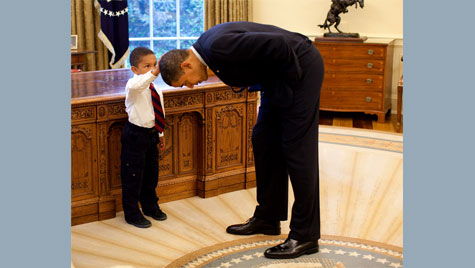I have felt from the beginning that Obama was more like Hoover than Roosevelt: he's obviously too invested in conventional thinking and power structures and arrived too early in the crisis to offer anything like "change."
Ritholtz asks an interesting question along these lines, citing the FT's Martin Wolf:
Wolf is, of course, exactly correct.
Consider the economic might brought to bear on the credit crisis — it was overwhelming force, nearly everything the Fed, Treasury and Congress could throw at a banking problem created by the private sector. The net result was a rescue, but at a cost of immense moral hazard and further unjust enrichment of the folks who caused the crisis in the first place.
When the credit crisis caused a similarly monstrous economic crisis, it was met with a lackluster, compromised, half-assed response. The response from the economy to such half-hearted political has been a yawn.
http://www.ritholtz.com/blog/2010/09...-during-panic/
Ritholtz asks an interesting question along these lines, citing the FT's Martin Wolf:
“Suppose that the US presidential election of 1932 had, in fact, taken place in 1930, at an early stage in the Great Depression. Suppose, too, that Franklin Delano Roosevelt had won then, though not by the landslide of 1932. How different subsequent events might have been. The president might have watched helplessly as output and employment collapsed. The decades of Democratic dominance might not have happened.
On such chances the wheel of history turns. But this time was different: the crisis brought Barack Obama to power close to the beginning of the economic collapse. I (among others) then argued that policy needed to be hugely aggressive. Alas, it was not. I noted on February 4 2009, at the beginning of the new presidency: “Instead of an overwhelming fiscal stimulus, what is emerging is too small, too wasteful and too ill-focused.” A week later, I asked: “Has Barack Obama’s presidency already failed? In normal times, this would be a ludicrous question. But these are not normal times. They are times of great danger. Today, the new US administration can disown responsibility for its inheritance; tomorrow, it will own it. Today, it can offer solutions; tomorrow it will have become the problem. Today, it is in control of events; tomorrow, events will take control of it. Doing too little is now far riskier than doing too much.” This was right.
The direction of policy was not wrong: policymakers – though not all economists – had learnt a great deal from the 1930s. Sensible people knew that aggressive monetary and fiscal expansion was needed, together with reconstruction of the financial sector.”
Ritholtz:On such chances the wheel of history turns. But this time was different: the crisis brought Barack Obama to power close to the beginning of the economic collapse. I (among others) then argued that policy needed to be hugely aggressive. Alas, it was not. I noted on February 4 2009, at the beginning of the new presidency: “Instead of an overwhelming fiscal stimulus, what is emerging is too small, too wasteful and too ill-focused.” A week later, I asked: “Has Barack Obama’s presidency already failed? In normal times, this would be a ludicrous question. But these are not normal times. They are times of great danger. Today, the new US administration can disown responsibility for its inheritance; tomorrow, it will own it. Today, it can offer solutions; tomorrow it will have become the problem. Today, it is in control of events; tomorrow, events will take control of it. Doing too little is now far riskier than doing too much.” This was right.
The direction of policy was not wrong: policymakers – though not all economists – had learnt a great deal from the 1930s. Sensible people knew that aggressive monetary and fiscal expansion was needed, together with reconstruction of the financial sector.”
Wolf is, of course, exactly correct.
Consider the economic might brought to bear on the credit crisis — it was overwhelming force, nearly everything the Fed, Treasury and Congress could throw at a banking problem created by the private sector. The net result was a rescue, but at a cost of immense moral hazard and further unjust enrichment of the folks who caused the crisis in the first place.
When the credit crisis caused a similarly monstrous economic crisis, it was met with a lackluster, compromised, half-assed response. The response from the economy to such half-hearted political has been a yawn.
http://www.ritholtz.com/blog/2010/09...-during-panic/




Comment